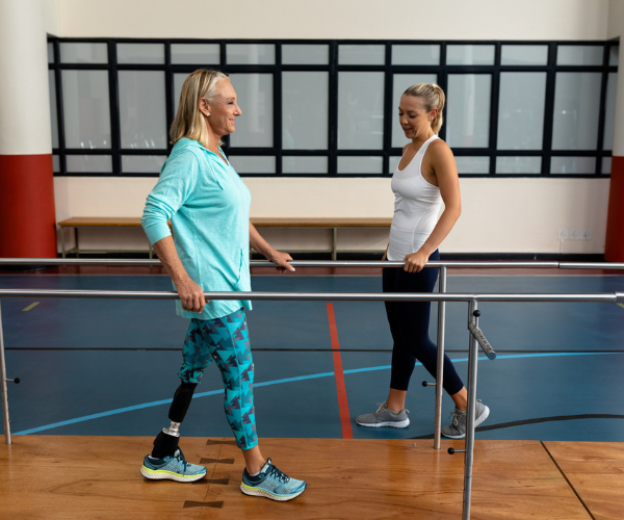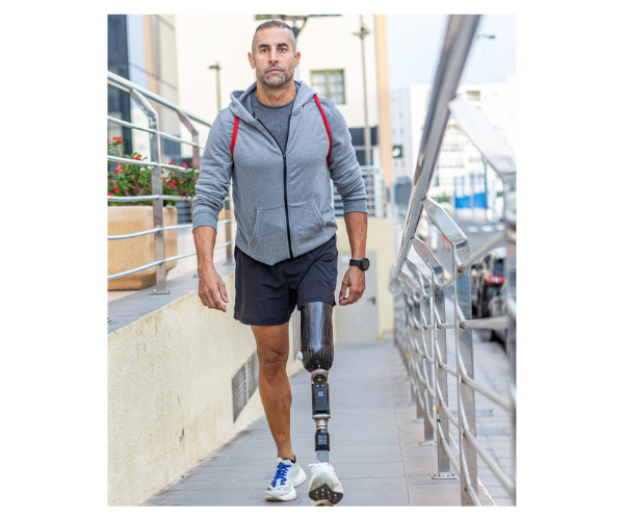Speaking to another amputee can make a real difference to your recovery and ease your concerns. We call this type of assistance Peer Support.
Following surgery, you will need time to recover. It is also a time to set goals about your journey ahead. Here, we help to guide you through the process to navigate your pathways forward.
Effectively managing your short and long term health will lead to better outcomes and prevent future problems.
Getting the right kind of prosthesis to suit your lifestyle needs and daily level of activity is important.
People are often concerned about the costs involved in getting a prosthesis. In Australia, there are a number of different funding schemes and it can be easy to get confused and to know what you are eligible for.

Trials are available for both upper and lower limb prosthetics and may include several types of prostheses to find the best match for you. A prosthetic trial is a temporary, testing phase where you can be fitted with different prosthetic componentry like feet, knees and arms, to assess functionality and suitability. The purpose of the trial is that you experience the device and ‘feel’ how it works and find out if it is ‘fit for purpose.’
Ask your prosthetist to help you to think about what you should consider during the trial. Write a list if you need to, that way you can check things off during the trial.
Personalised fit and comfort.
We know that every amputation is different, just like every amputee is individual. Factors such as residual limb length, skin condition, muscle strength, and daily activity level can greatly influence the performance of a prosthesis.
Improved functionality and mobility.
Trials give amputees a chance to test various features—like grip patterns in upper limb devices or microprocessor knees in lower limb prostheses—before committing. It allows you and your team to:
Trials can help you to make sure that the device you chose is ‘fit for purpose’ and also helps you to achieve your goals.
Cost-effectiveness and informed decision-making.
Prosthetic devices represent a significant financial investment. Let’s face it, they are expensive! A trial reduces the risk of selecting a prosthesis which doesn’t meet your needs and ends up gathering dust in a wardrobe.
Enhanced long-term outcomes.
Amputees who make the most out of prosthetic trials are more likely to experience successful long-term use. Benefits include:
This leads to improved health outcomes and a more fulfilled life.

Who should consider a prosthetic trial?
Prosthetic trials are beneficial for:
Trying out prosthetics can help people take control of their own movement and comfort. It allows them to find what works best for them and feel more comfortable using the device. As prosthetic technology improves, these trials are very important for giving people the best possible care and improving their lives in the long run.
Who’s eligible to do prosthetic trial?
Everyone!
It doesn’t matter if you’re seeing your usual prosthetist or how long you’ve been a prosthetic user. If there’s something that you’d like to try, tell your clinician that you’d like to undertake a trial of that prosthetic device. You can see how the device performs at home or work, doing your everyday tasks, which may be very different to how it feels and performs in a clinical setting.
There aren’t too many things out there that we can try before we buy, so take advantage of this often unknown benefit!
Keep up to date with our latest news, events and information
